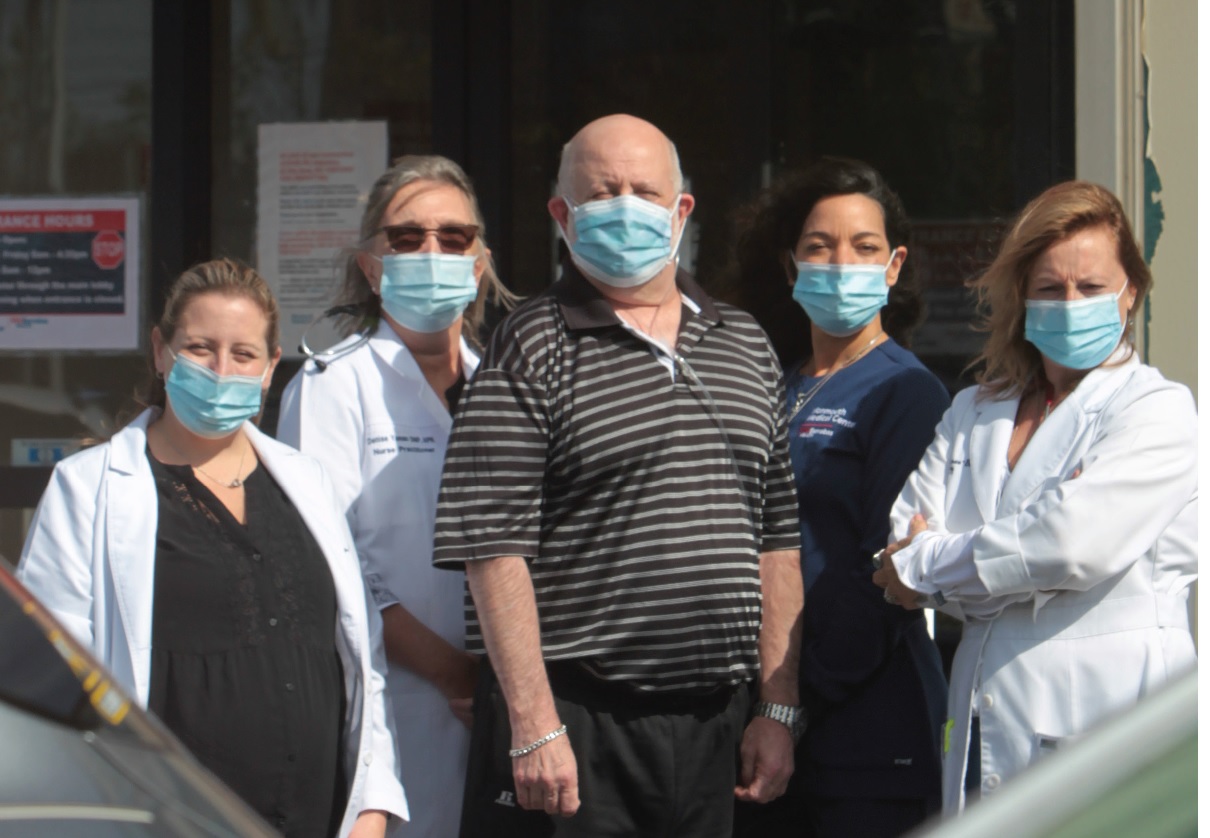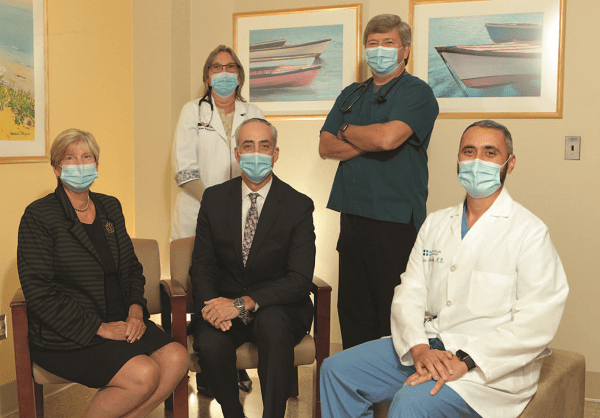
Frequent checkups can help patients with a serious cardiac condition stay on top of their health.
About two years ago, Doug Runge, 60, of Little Silver was hospitalized at Monmouth Medical Center (MMC) for congestive heart failure (CHF), emphysema—a lung condition that causes shortness of breath—and chronic obstructive pulmonary disease (COPD). When he was discharged, his primary care physician and nurses recommended that he enroll in MMC’s Healthy Lives Program, in which patients with heart failure and COPD are closely monitored to reduce their risk of being readmitted to the hospital.
Today, Doug comes to the hospital every two to four weeks for blood work, lung function tests, and medication checks.
“It’s very helpful,” says Doug. “The nurses are warm and make me feel at ease. They talk to me on the same level, which makes my situation easier to understand.”
Recently, Doug was having trouble sleeping due to difficulty breathing.
One of the Healthy Lives nurses prescribed a respiratory treatment that has helped him get a good night’s sleep and greatly improved his quality of life.
“I feel like I’m on top of my health, even though I have a progressive disease,” says Doug. “I can manage my symptoms much better.”
Avoiding Readmission
Hospitalization is common for patients with heart failure. About 83 percent of patients are hospitalized at least once, and 43 percent are hospitalized at least four times, according to a study published in the Annals of Translational Medicine.
CHF is an advanced form of heart failure and has the highest readmission rates.
Over the past decade, strict guidelines have been developed to help doctors manage patients with CHF and keep them out of the hospital, says Isaac Tawfik, MD, Chief of Cardiology at MMC and a member of RWJBarnabas Health Medical Group.
Patients need to take medication, follow a strict diet, exercise regularly, and weigh themselves daily.
“They’re supposed to call us if their weight fluctuates by more than three pounds,” says Dr. Tawfik. “If they retain excess water, they’re more likely to require hospitalization.”
The Benefits of Routine Monitoring
The Healthy Lives Program employs four nurse practitioners (NPs) with more than 20 years of experience working with cardiology patients. The NPs perform stress testing, check patients’ medications and lab results, and visit them at their homes. They also educate patients about heart failure.
“We want patients to understand why we ask them to do things,” says Dr. Tawfik. “If they understand, they’re more likely to comply and end up with a better health outcome.”
While the NPs can monitor patients remotely through telemedicine, it’s beneficial for patients to come to the office for checkups. “In-person appointments enable us to examine patients,” says Dr. Tawfik. “We can check for leg swelling, signs of water retention, and breathing problems and intervene early to prevent hospital readmission. We can also listen to patients’ hearts and check for valve problems.”
During an office visit, a patient can be checked for related disorders, such as kidney failure.
“Blood work can tell us if a patient has kidney disease and needs diuretic medications,” says Dr. Tawfik.
If a person is retaining an excessive amount of fluid, he or she can be given intravenous diuretics in the office and avoid a visit to the Emergency Department. Dr. Tawfik is evaluating a new device called ReDS, which provides a quick, accurate, and noninvasive measure of how much fluid is present in a patient’s lungs, a measure of heart failure. The device has been shown to help improve the quality of life of CHF patients and reduce readmission rates.
The Healthy Lives office recently moved to a new, more convenient, and accessible location at the hospital. Previously, it was located on the fourth floor, and now it’s on the ground floor.
“I’m excited about the new location because it’s close to the parking lot,” says Dr. Tawfik. “Patients don’t need to walk as far to get to the office.”

Gathering in the newly renovated home of MMC’s Healthy Lives Program are, seated, from left: Maureen Bowe, MSN, RN, Administrative Director of Critical Care, Renal Services and Nursing Resources; Eric Carney, President and CEO of MMC and Monmouth Medical Center Southern Campus; and Isaac Tawfik, MD, Chief of Cardiology. Standing, from left: Denise Yaman, DNP, APN, CHFN, the Healthy Lives Program Coordinator, and Chandler Patton, MD, Medical Director of the Healthy Lives Program and Pulmonary and Critical Care.
Your heart doesn’t beat just for you. Get it checked. To reach a Monmouth Medical Center cardiac specialist, request an appointment or call (888) 724-7123.